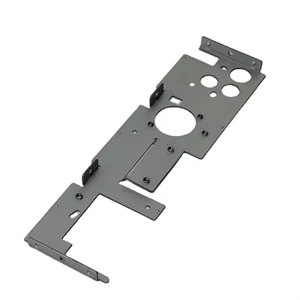CNC Punching(Computer Numerical Control Stamping) is a stamping method that uses computer numerical control technology, which is widely used in the processing of various metallic and non-metallic materials. When choosing a material for CNC Punching, you need to consider factors such as the strength, toughness, wear resistance, corrosion resistance, and machinability of the material. Here are some of the materials commonly used for CNC stamping:
Carbon steel: Carbon steel has good strength and machinability, and is widely used in CNC stamping to manufacture various parts and structural parts.
Stainless steel: It has good corrosion resistance, strength, and hardness, and is commonly used in the manufacturing of various industrial components, casings, and structural components. For example, 304 stainless steel and 316 stainless steel.
Cold rolled steel plate: With good surface quality and mechanical properties, it is commonly used in the manufacturing of chassis, cabinets, metal furniture, etc.
Galvanized steel plate: The surface galvanizing treatment increases the rust resistance and is commonly used in electrical enclosures and building structures.
Aluminum alloy: Aluminum alloy has the characteristics of light weight, high strength, corrosion resistance, etc., which is very suitable for CNC Punching machining, especially in applications that need to reduce weight.
Brass: Because of its ease of machining, smooth, and clean surface, brass is widely used to manufacture parts that require complex functions, especially in medical devices, electronic hardware, and more.
Titanium: Due to its excellent heat and corrosion resistance, titanium is widely used in aerospace, medical and other fields, and is also commonly used in CNC Punching.
In addition to the above materials, CNC Punching may also use other metal and alloy materials such as Inconel, Invar, nickel, niobium, etc., as well as non-metallic materials such as wood (such as birch plywood), etc.
